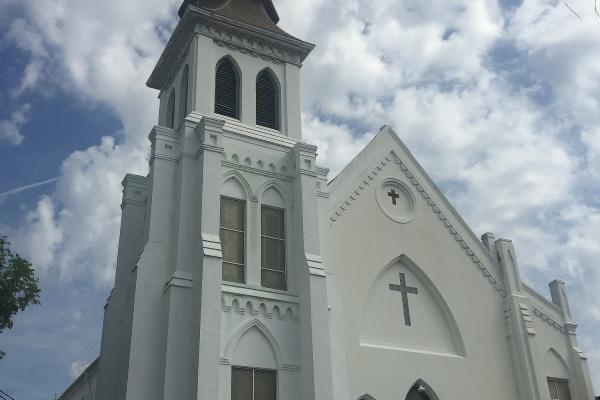We saw a gathered crowd, a makeshift memorial, flowers and ribbons with the names of the beloved on them. We five walked our pilgrimage, paid our respects separately and together. I spoke to people from Charleston, New York, New Jersey, Connecticut, and Texas. They were predominantly white, but people of all races – children and old folk — weeping, hugging. It was church, y’all, like when at first everyone is not there and then they come.
As we talked to community people, tourists and pilgrims, we also talked to CBS, CNN, some British folk, a black man who covers black news. Reporters were intrigued by our multiracial and multi-faith, interracial and interfaith, LGBTQ and straight, coalition of women. We spoke into the cameras about how we represented a culturally and ethnically diverse American truth.
Read the Full Article

